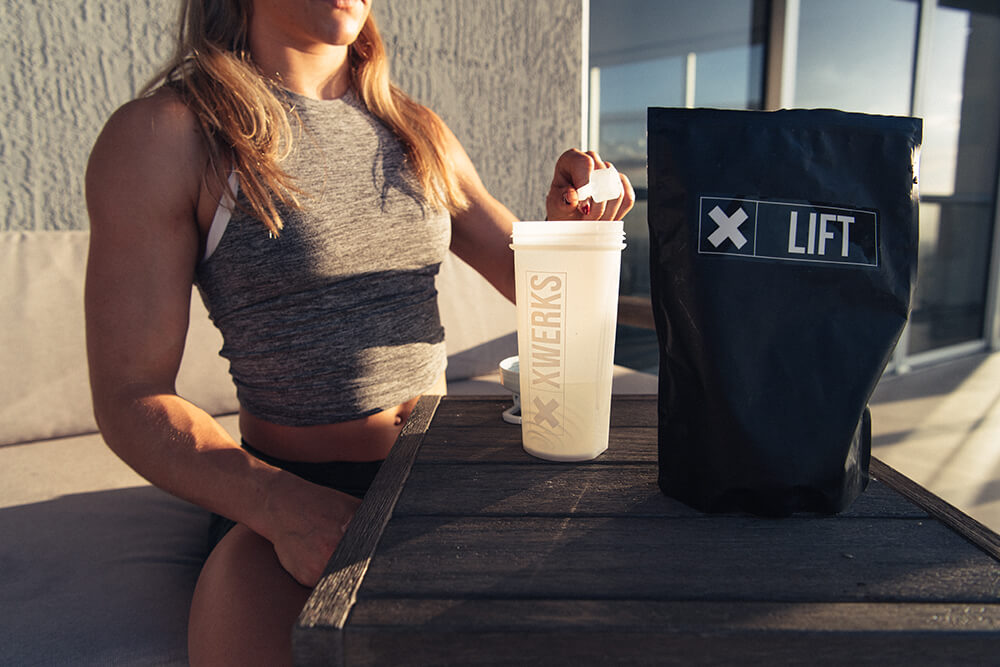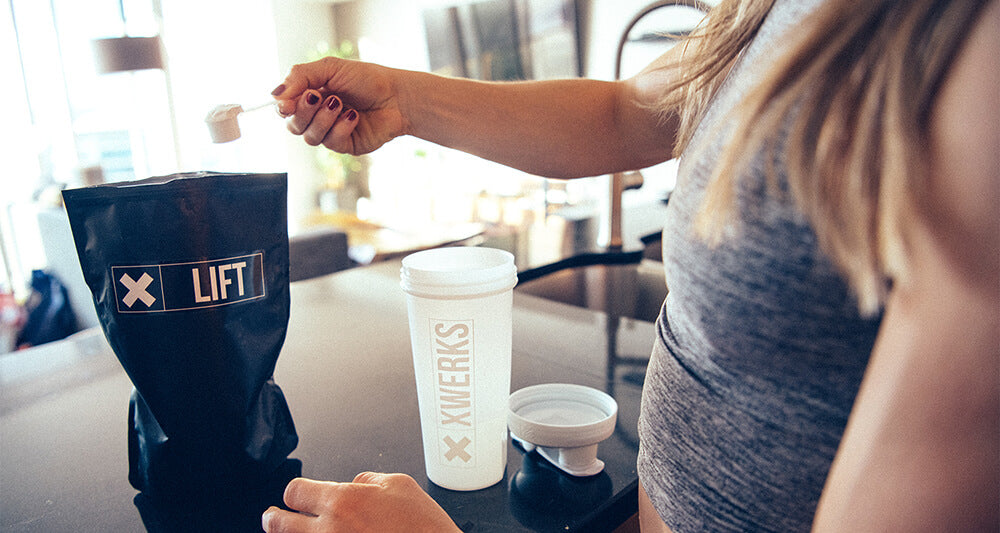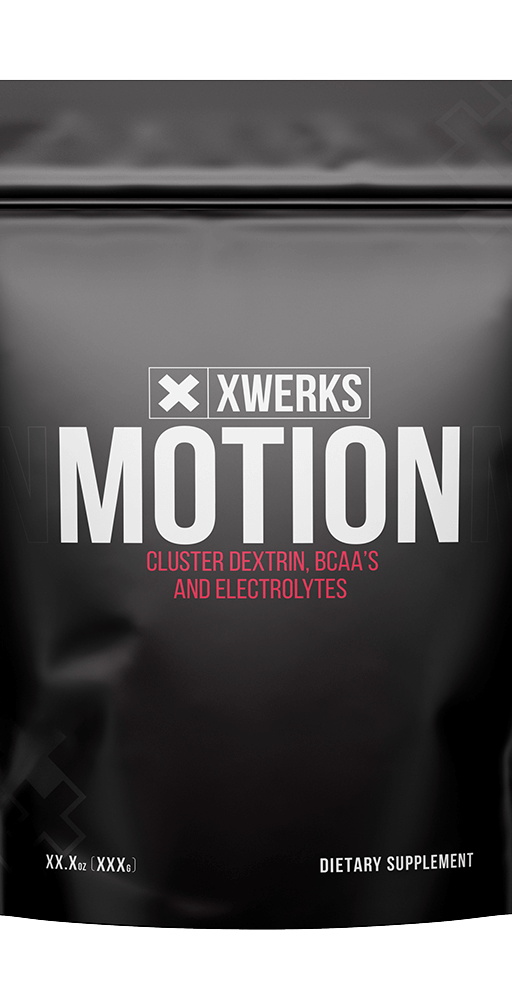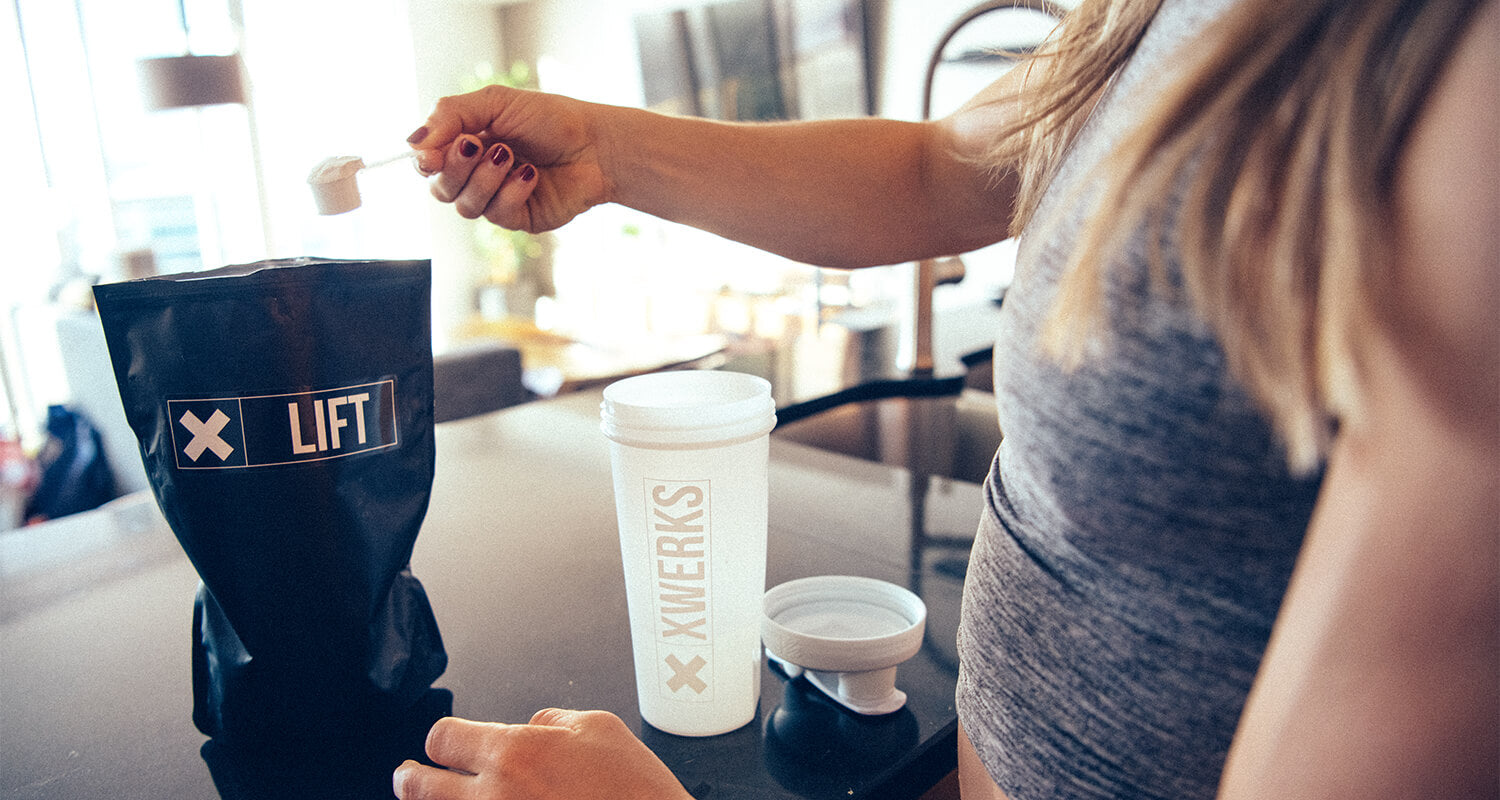Creatine first made its appearance in 1992 during the Olympics when it was taken by Linford Christie before he won the 100m sprint. This led to a flurry of questions and doubts about what this mysterious substance was. Is it a steroid? Will it help to make you stronger? Does taking creatine have any adverse health risks or does it have any side effects?
Well, if you were uncertain and doubtful about the safety and efficacy of creatine, in this guide, we will discuss the health benefits of creatine, which is becoming popular the world over as a safe supplement that can have muscle boosting and several other beneficial properties.
What Is Creatine?
Very simply, creatine monohydrate or simply known as creatine is a compound which comprises nitrogen and the 3 amino acids arginine, glycine and methionine. Creatine is produced by our body and it is also found naturally in foods such as meat, eggs and fish. Getting sufficient creatine from the diet alone is not really possible unless you follow the carnivore diet. Otherwise, you can get creatine only by supplementation.
How Does Creatine Work?
Creatine supplies energy to the muscles in your body. In the human body, creatine is produced in the kidney, liver and pancreas and is then transported to the muscles. Most of the creatine found naturally in our body is stored in the skeletal muscle, where it is converted into creatine phosphate and is used to top-up the body’s ATP (energy source of the body) levels and the energy is utilized by the body for all the metabolic functions.
Adenosine triphosphate or ATP is responsible for providing energy that helps muscles contract. When the muscles contract, the ATP loses a phosphate molecule and becomes ADP and for the muscles to keep working, the ADP must be converted back to ATP, which helps to recharge the muscles. This entire process helps to extend the time that you are able to sustain any high-threshold activity and it also boosts the body’s capacity. This essentially means that you can do more sets of presses, squats and other weight training exercises or you can run at your top speed for longer on the track, etc. Put simply, creatine helps to lengthen the duration of your performance in any kind of anaerobic or quick-burst activity.
History of Creatine
Creatine was discovered by Michel Eugene Chevreul, a French scientist in 1832, where he isolated creatine from meat. A Harvard study conducted in 1912 discovered that consuming creatine offered several muscular benefits. Creatine took the nutrition world by storm in the early 90s and the benefits of creatine made it a hot-selling sports nutrition product in the fitness circles and started being used by athletes, bodybuilders and fitness buffs. Creatine is available in the market on its own or as a key element in pre- and post-workout supplements.
Natural Foods That Contain Creatine
Creatine occurs naturally in many foods that we eat. Fresh meats like beef, pork and fish are excellent sources of creatine. A pound of fresh beef contains around 5 grams of creatine, while 1 pound of red meat contains around 2 grams. A pound of salmon and tuna contain around 4.5 grams of creatine. However, creatine is very sensitive and when you cook the meat, the creatine in the meat is destroyed. Milk and cranberries are vegetarian options that contain creatine; however, meat is the best natural food source of creatine.
Types of Creatine
The different forms of creatine are:
-
Creatine Monohydrate: This is the most popular form of creatine and is found naturally in the human body and is used in supplements.
-
Micronized Creatine: This is also a form of creatine monohydrate and it mixes much better than regular creatine monohydrate as it is refined to its micronized form.
-
Creatine Ethyl Ester: This of creatine monohydrate includes an ester and is absorbed very easily by the body.
Benefits of Creatine
Boosts the Energy Produced by Muscles
The muscles in your body contain phosphocreatine which helps to form new ATP that is used by the cells for all the basic functions and for energy. When you exercise, the ATP is broken down in order to produce energy. The ATP re-synthesis rate restricts your capability to perform at maximum intensity continuously and the body uses the ATP faster than it is built up. Creatine supplements can help to increase the stores of phosphocreatine in the body and allows the body to produce more energy in order to deliver energy to the muscles during high-intensity workouts. This is how creatine supplementation can help in enhancing performance levels.
Helps in Other Muscle Functions
Creatine is extremely effective when it comes to adding muscle mass. Creatine alters the various cellular pathways that result in the growth of new muscle and also boosts the production of protein which plays a very important role in creating new muscle fibers. It also helps to stimulate the AKT/PKB pathway and increases the IGF-1 levels which stimulate the building of muscle mass in the body. Having a creatine supplement helps in cell volumization i.e. it increases the water content in the muscles and this causes the muscles to increase in size. Creatine supplements can also help to decrease the myostatin level in the body, which is responsible for inhibiting muscle growth and reduction in myostatin helps in building the muscles faster.
Enhances High-Intensity Exercise Performance
Creatine plays a very important role in energy production and this, in turn, can help to boost the high-intensity exercise performance significantly, by around 15%. Creatine can help in improving several factors such as strength, muscle mass, resistance to fatigue, muscle endurance, ballistic power, ability to sprint, recovery and brain performance. Creatine provides several advantages irrespective of your present fitness level.
Hastens Muscle Growth
Creatine has proved to be an excellent supplement that helps in adding muscle mass. Just taking it for a period of 5-7 days can help to increase your muscle size and also your lean body weight. The initial increase in muscle size may be due to the increased water content in the muscles; however, in the long run, creatine also helps in the growth of fiber muscle by signaling the key biological pathways and also by increasing the performance in the gym.
A study showed that participants underwent a 6-week training and the individuals who added creatine supplementation to the routine put on 4.4 lbs muscle mass compared to the people who did not consume creatine. A review stated that compared to all the sports supplements available, creatine is among the best. Not only does it produce the best results, it also the safest and least expensive.

Other Health Benefits of Creatine
May Help in Parkinson’s Disease
Parkinson’s disease is caused due to the reduction of the neurotransmitter dopamine in the brain and when there is a huge fall in the dopamine levels, this causes the death of brain cells accompanied by serious symptoms such as loss of muscle function, speech impairment and tremors. A study on mice has shown creatine to be beneficial for Parkinson’s by preventing the drop in dopamine levels by 90%. In human beings suffering from Parkinson’s disease, combining weight training along with creatine supplementation can help in improving daily function and strength.
Can Help to Combat Other Neurological Diseases
Usually, the cause of several neurological diseases is due to the reduction in levels of phosphocreatine in the brain. It is seen that creatine can increase the levels of phosphocreatine, which can help to slow or reduce the progression of the neurological disease.
A study showed that creatine supplementation restored the phosphocreatine levels in the brain of mice suffering from Huntington's disease by up to 72% of the pre-disease level. This helped to reduce the cell death rate by 25% and also maintain the daily function. Research shows that creatine supplementation can also help in the treatment of other diseases such as Alzheimer’s disease, epilepsy, spinal cord or brain injuries and ischemic stroke. Creatine supplementation has also shown benefits in the case of ALS, which is a disease that affects the motor neurons. Creatine helped to reduce the muscle loss, improve the motor function and extend the rate of survival by around 17%.
Can Help to Improve the Brain Function
Creatine pays a vital role in the functioning of the brain and brain health. While performing difficult tasks, the brain needs a high amount of ATP and creatine supplements can help to increase the phosphocreatine stores in the brain and boost the production of ATP. Creatine also boosts the brain function by improving the mitochondrial function and improving dopamine levels.
Typically, meat is the best source of creatine, while vegetarians have low levels of creatine as they do not eat meat. A study showed around 20% - 50% improvement in the intelligence scores and memory in vegetarians after they consumed creatine. Creatine supplements also showed a significant improvement in recall and memory in elderly persons after 2 weeks of creatine supplementation. Other studies reveal that creatine supplementation in elderly people can help to improve the brain function, prevent neurological diseases and also reduce the loss of strength and muscle due to aging.
Help to Lower Blood Sugar Levels and Combat Diabetes
According to research, creatine supplements can help to lower blood sugar levels, which may be due to the function of GLUT4, which is a transporter molecule that provides blood sugar to the muscles. A study spanning 12 weeks shows that people who exercised along with taking creatine supplements could control their blood sugar levels compared to the people who only exercised.
Can Help to Reduce Fatigue
Having creatine supplements can help in reducing tiredness and fatigue. A study revealed that when patients suffering from traumatic brain injury consumed creatine supplements, experienced a 50% reduction in dizziness compared to those who did not have the supplement. Also, only 10% of the patients who had the creatine supplement suffered from fatigue compared to 80% of those who did not have the creatine supplement. Another research study revealed that creatine supplementation helped to increase energy levels and reduced fatigue in people who were sleep deprived. Creatine supplementation also helps to reduce fatigue that is induced by exercise in athletes and helps in decreasing fatigue when you exercise in high heat conditions.
5 Reasons To Use Creatine
Ease of Use and Safety of Creatine
Although there have been many controversies surrounding the use of creatine, studies have proved that it not only has numerous benefits, it is also very affordable and quite safe to use. You can buy creatine online or at any health store. Creatine supplementation, its effectiveness and safety have been researched for over two centuries and several studies support the safety of creatine use in the long-term. People using creatine supplements for up to 5 years did not show any adverse effects.
The IJSM (International Journal of Sports Medicine) reported a few side effects with long-term usage of creatine such as gastrointestinal discomfort, nausea and diarrhea. In a study, participants took around 10 grams of creatine daily for a period of 1 year and only 175 people claimed to have problems. And, problems with creatine usually occur when very high amounts are taken at once or when your water consumption is not adequate.
Creatine supplementation is extremely easy and a dose of 3-5 grams of creatine monohydrate is sufficient. Creatine can be taken any time of the day; however, taking creatine post a workout produces the best results. A study conducted in 2013 revealed that creatine consumption after workout leads to better strength gains and a better body composition when compared to taking it before a workout. Another study showed that 5 grams of regular creatine intake was safe.
Do You Need to Load Creatine?
In the past, fitness experts recommended creatine loading, where you needed to take creatine powder 0.3 grams/kg of your body weight for a period of 5-7 days to ensure maximum saturation of your muscle tissue and this period was followed by 3-5 grams of maintenance dose per day. This approach is quite effective and you can see results faster; however, it is not really required. Taking just the 3-5 grams per day works well without going through the loading phase. For larger people with big muscle mass or those who follow higher activity levels, a higher dosage of around 10 grams per day may be more effective.
Many experts recommend that after 3-4 weeks of taking creatine, you must stop taking it for 1-2 weeks before you start again. However, this is not really necessary and you can take it continuously without stopping. But, stopping the creatine in between can help the muscles to be more sensitive and your gains may be better when you restart after taking a short break.
A very important thing to note is that creatine is not a steroid and does not have the harmful effects of taking steroids. Also, when you stop taking creatine, you do not lose the gains you experienced while taking it. Studies show that loss in performance when cycling of creatine can be wide-ranging and you can maintain the progress that you have made for a period of 4-12 weeks of being creatine-free.
What Is the Best Kind of Creatine?
Most of the research that has been done so far has resulted in positive benefits with the consumption of creatine monohydrate. It is a good idea to always buy a high-quality creatine supplement and avoid inferior and cheap options that guarantee greater advantages but do not deliver. A study done in 2012, compared creatine monohydrate with buffered creatine and did not find that it to be more effective or safer. Also, it was found that creatine ethyl ester was not as effective as creatine monohydrate when it came to improving muscle mass, body composition, power and strength.
In short, creatine is an excellent supplement that is extremely safe to use in the long term. It offers powerful health benefits, may have neuroprotective properties and is great in boosting sports performance. Overall, creatine is a great all-round supplement and if you’re looking to improve your endurance, muscle size, strength and also your cognitive function, then it may be worth giving creatine supplements a try.
Learn more about XWERKS Lift creatine monohydrate or shop on Amazon

























